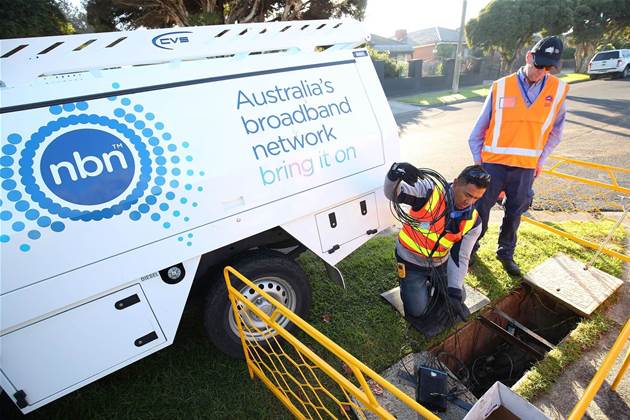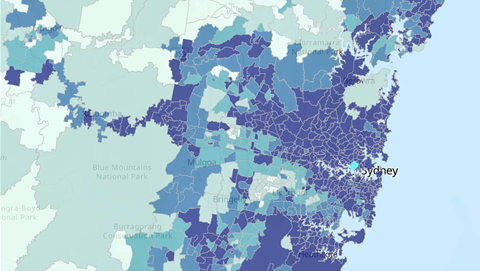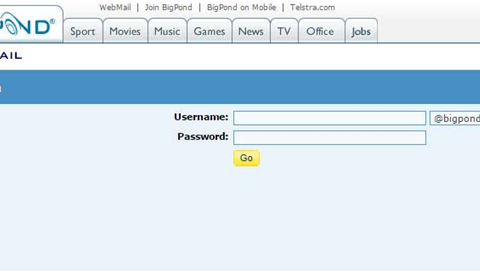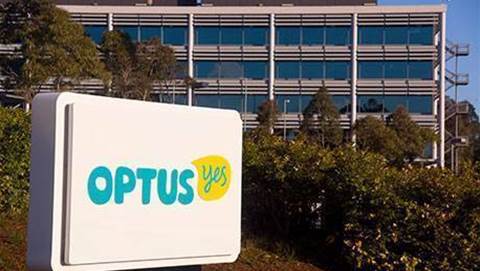NBN Co is unwilling to offer better service standards for 50Mbps users in exchange for a planned price rise, setting up a potential flashpoint in its industry negotiations.

The operator said it broadly does not want to create an expectation that price rises mean better baseline service standards, arguing it should be able to charge more just to maintain its current service levels.
The issue has come up in recent months owing to plans by NBN Co to increase charges for its 50Mbps tier, which is home to more than half its fixed-line user base.
Retailers that participated in closed-door forums in September had queried why the latest proposed increase - and price rises since 2020 - had not resulted in better baseline service standards for users.
“In response, NBN Co advised the forum that it would further consider whether it could lift some of its service levels as part of its pending special access undertaking (SAU) variation proposal,” a record of that forum states [pdf].
However, it appears retail service providers (RSPs) hoping for change will see little.
In separate parts of an explanatory document released earlier this week, NBN Co argues that price rises should not be an automatic trigger for service improvements.
“Some RSPs have suggested that NBN Co’s prices should not be permitted to increase without a commensurate increase in service standards,” the company said. [pdf]
“If NBN Co’s costs increase as a result of service-level improvements demanded by end-users, then NBN Co should have the opportunity to recover this cost.
“Similarly, if NBN Co’s prices need to increase from the current levels in order to recover the reasonable costs of meeting the existing service standards, that would also be legitimate.”
It’s that last line that is contextually important.
In a separate document [pdf], NBN Co offers three reasons why raising the price of the 50/20Mbps service “with no corresponding increase in service standards” should be acceptable.
The company asks internet providers - and users - to effectively accept the good with the bad, and the idea that some tiers will effectively finance changes to others.
“NBN Co has proposed the price structure, price points, and price controls based on the NBN Ethernet product as a whole,” it said.
“This requires a balancing of price points across all NBN Ethernet speed tiers, and the price movement on the 50/20 Mbps must be considered in that context.
“Focusing on the price change of a particular speed tier and questioning the associated change in service quality for that speed tier ignores the trade-offs that have already been made across the product suite as a whole (e.g., foregone CVC revenue on higher speed tiers in the short term and on lower speed tiers in future).”
This point is further elaborated on, confirming that 50Mbps users will pay more so that NBN Co can simplify pricing for its higher speed tiers.
“Rather than viewing specific price movements as a price increase with no change in service quality, it is important to acknowledge that the new price points are a consequence of the introduction of TC-4 Flat Rate pricing (in response to RSP concerns regarding the long-term viability of usage charges),” NBN Co said.
“NBN Co has responded directly to sustained industry concerns by the proposed removal of TC-4 CVC charging on all services by July 2026 but, in doing so, must also ensure that it retains the opportunity to recover its efficiently incurred costs.
“This is important not only so that nbn can meet its mandate to operate as a standalone commercial entity, but also so that it can earn revenues sufficient to maintain and upgrade the network for the benefit of all end-users.”
NBN Co goes on to say that, as its current prices don’t necessarily reflect its costs, “if the price-quality link was assessed according to isolated speed tiers, it would suggest that NBN Co should be lowering its service standard commitments in relation to those speed tiers”.
“This is clearly an undesirable outcome,” it said.
“Rather, the evolution of prices must be viewed as a whole – i.e., taking into account the changes for all NBN Ethernet speed tiers.”
More fibre
NBN Co has offered to tweak three service standards as part of its revised special access undertaking - improvements it branded "targeted".
The change getting the most attention is that users that experience more than seven unexpected dropouts on their connection within a 24 hour period qualify for a technician visit, down from more than nine dropouts.
“NBN Co is proposing to lower the dropout threshold for faults to >7 within a 24-hour period (from >9),” it said.
“This commitment does increase NBN Co’s exposure to truck roll and rebate costs for FTTN [fibre-to-the-node] and HFC [hybrid fibre coaxial] services.
“However, NBN Co has assessed that the potential increase in costs is appropriate when balanced against the benefits that this reduced threshold will bring for end-users on the network.”
NBN Co makes clear that more substantive changes to service levels will really only come when more of its fixed-line network is fibre.
“The core strategy for increasing service standards on, and reliability of, the NBN network over time is the investment in upgrading copper services to fibre,” it said.
"NBN Co's network strategy prioritises this evolution of the network."
NBN Co argues that more substantive changes to service standards now would divert capex from its copper overbuild.
"While it is essential that end-users continue to receive a service that meets their expectations, and NBN Co is committed to continual improvement of services for all end-users, it is important that NBN Co does not introduce and entrench higher service standards on those access technologies that are subject to overbuild if such commitments would divert capex that is more efficiently spent on upgrading the network over time, or would impact NBN Co’s ability to maintain the network to meet existing service quality commitments," it said.


























